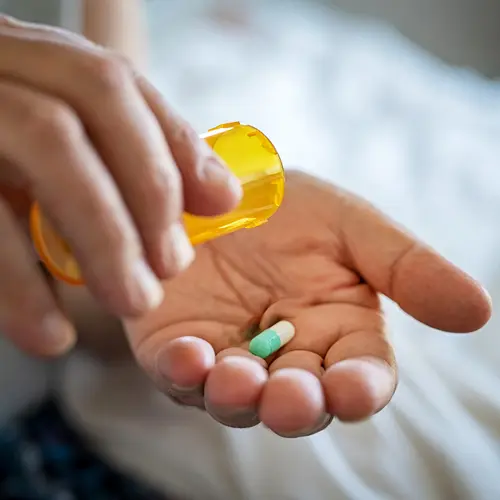Pain is your body's normal reaction to an injury or illness, a warning that something is wrong. When your body heals, you usually stop hurting.
But for many people, pain continues long after its cause is gone. When it lasts for 3 to 6 months or more, it's called chronic pain. When you hurt day after day, it can take a toll on your emotional and physical health.
About 25% of people with chronic pain will go on to have a condition called chronic pain syndrome (CPS). That's when people have symptoms beyond pain alone, like depression and anxiety, which interfere with their daily lives.
CPS can be hard to treat, but it's not impossible. A mix of treatments like counseling, physical therapy, and relaxation techniques can help relieve your pain and the other symptoms that come with it.
What Causes Chronic Pain Syndrome?
Doctors don't know exactly what causes CPS. It often starts with an injury or painful condition such as:
- Arthritis and other joint problems
- Back pain
- Headaches
- Muscle strains and sprains
- Repetitive stress injuries, when the same movement over and over puts strain on a body part
- Fibromyalgia, a condition that causes muscle pain throughout the body
- Nerve damage
- Lyme disease
- Broken bones
- Cancer
- Acid reflux or ulcers
- Inflammatory bowel disease (IBD)
- Irritable bowel syndrome (IBS)
- Endometriosis, when tissue in the uterus grows outside of it
- Surgery
The roots of CPS are both physical and mental. Some experts think that people with the condition have a problem with the system of nerves and glands that the body uses to handle stress. That makes them feel pain differently.
Other experts say CPS is a learned response. When you're in pain, you may start to repeat certain bad behaviors even after the pain is gone or has lessened.
CPS can affect people of all ages and both sexes, but it's most common in women. People with major depression and other mental health conditions are more likely to get CPS.
Symptoms
CPS affects your physical health, your emotions, and even your social life over time. The pain can lead to other symptoms, such as:
- Anxiety
- Depression
- Poor sleep
- Feeling very tired or wiped out
- Irritability
- Guilt
- Loss of interest in sex
- Drug or alcohol abuse
- Marriage or family problems
- Job loss
- Suicidal thoughts
Some people with CPS need to take more and more medicine to manage their pain, which can make them dependent on these drugs.
Getting a Diagnosis
Your doctor will ask you about any illnesses or injuries that might have started the pain. They will also ask other questions to learn more about the type of pain you feel and how long you've had it:
- When did the pain start?
- Where on your body does it hurt?
- What does the pain feel like? Is it throbbing, pounding, shooting, sharp, pinching, stinging, burning, etc.?
- How severe is your pain on a scale of 1 to 10?
- What seems to set off the pain or make it worse?
- Have any treatments relieved it?
Imaging tests can show whether you have joint damage or other problems that cause pain:
- CT, or computed tomography. It's a powerful X-ray that makes detailed pictures inside your body.
- MRI, or magnetic resonance imaging. It uses magnets and radio waves to make pictures of organs and structures inside you.
- X-ray. It uses radiation in low doses to make images of structures in your body.
Treatments
To treat your pain, you can visit:
- Your primary care doctor
- A specialist for the medical condition that's causing your pain -- for example, a rheumatologist to treat arthritis
- A pain clinic or center
Your doctor will tailor your therapy to the source of your pain. You might get one or more of these treatments:
- Physical therapy, including heat or cold on the part that hurts, massage, stretching exercises, and transcutaneous electrical nerve stimulation (TENS)
- Occupational therapy
- Counseling, one-on-one or group therapy
- Braces
- Relaxation techniques such as deep breathing or meditation
- Biofeedback
- Spinal cord stimulation
- Nerve blocks
- Pain medicines such as NSAIDs, antidepressants, anti-seizure drugs, and muscle relaxants
- Surgery to treat the condition that caused the pain
When to Call a Doctor About Your Pain
Some pain can be normal, especially if you've recently had an injury, illness, or surgery. Call your doctor if the pain is intense, it doesn't stop, or it keeps you from doing your regular activities every day.

